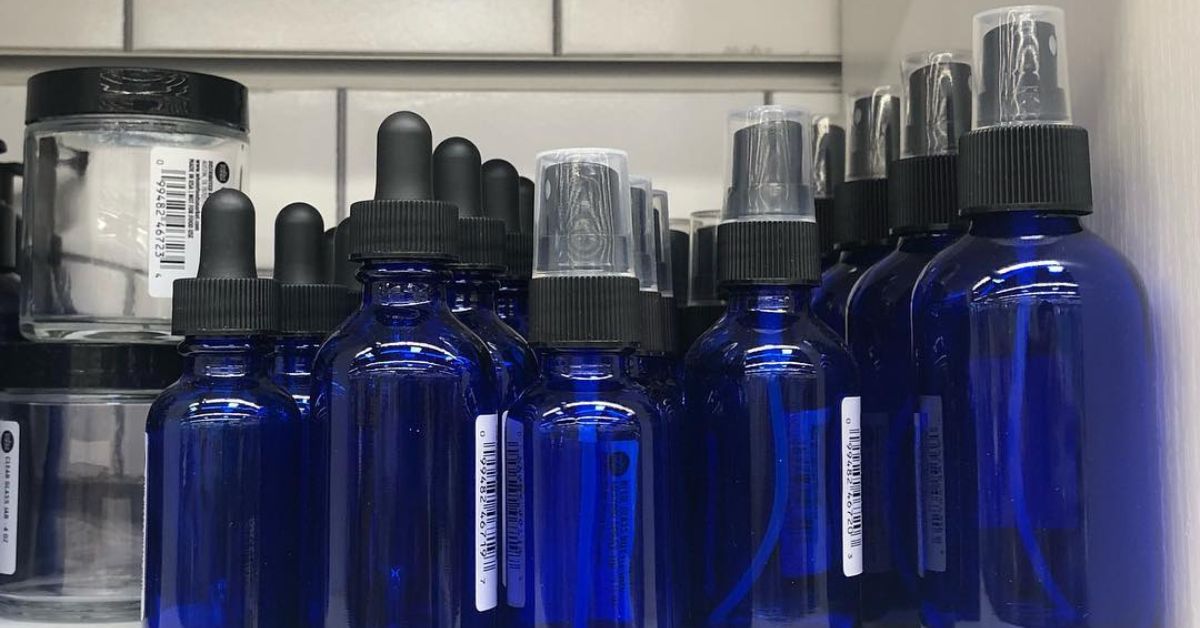Selecting the right packaging material is an important decision for any small business. Packaging is a protective element for a product, a key component of your branding, and an important touchpoint with your customers.
For small businesses, making the correct choice can influence product safety, marketability, and overall customer satisfaction. This guide provides insights into packaging materials and offers advice to help small business entrepreneurs choose the right ones.
The Importance of Choosing the Right Packaging
For small businesses, packaging serves multiple purposes. First and foremost, it protects products during storage, handling, and shipping. Beyond functionality, it contributes to the customer’s experience and perception of your brand. Eye-catching and thoughtfully designed packaging can boost your product’s appeal and create a lasting impression.
Making the wrong decision can lead to logistical challenges, increased costs, and diminished customer experience. Choosing the right packaging material is an essential step for small businesses aiming to establish a reputable brand.
Types of Packaging Materials To Consider
Small businesses can consider several types of packaging materials based on the nature of the product and the desired customer experience. Each offers unique benefits and drawbacks.
Glass Packaging Materials
Glass packaging offers a premium feel and is widely admired for its transparency, versatility, and eco-friendliness. Products like cosmetic serums, essential oils, or gourmet food items commonly use glass containers.
Some businesses are implementing the milkman model to reuse glass packaging, which is a consideration if your business wants to promote sustainability. While glass is recyclable and nonreactive, its fragility can increase shipping risks and require careful handling. That said, it is a suitable option for brands seeking a high-end, sustainable image.
Plastic Packaging Materials
Plastic packaging continues to dominate due to its lightweight design, durability, and adaptability to various shapes and forms. It is commonly used in industries such as food and beverages, beauty, and pharmaceuticals.
Modern innovations in plastic manufacturing allow businesses to use biodegradable or recycled plastic, reducing their ecological impact. Small businesses often gravitate toward plastic due to its affordability and ease of customization. However, it is important to convey to eco-conscious consumers that you prioritize sustainability by choosing greener plastic options where possible.

Types of Packaging Closures
Closures, such as lids, caps, or droppers, are essential details in packaging. They ensure the product remains secure while enhancing usability. For example, glass and plastic dropper pipettes are popular choices for products like oils, tinctures, and serums. Select closures based on the product’s specific requirements, such as an airtight seal, ease of use, and compatibility with the container.
Tips for Choosing the Right Packaging Materials
Making the right choice involves several considerations, from cost-effectiveness to aligning with your brand image. Below are tips to guide your decision.
Buying Packaging in Bulk
Small businesses can save costs by purchasing packaging materials in bulk. Bulk purchasing reduces the per-unit cost and ensures consistent supplies, minimizing disruption to your operations. Look for suppliers that offer flexible minimum order quantities to cater to businesses of all sizes.
Understand Your Audience
The right packaging material should cater to the preferences and expectations of your target audience. High-end retail customers may favor elegant glass packaging, while an eco-conscious demographic might appreciate recyclable or biodegradable plastic alternatives. Matching your packaging with customer values builds trust and loyalty.
Consider Cost
Packaging costs should align with your overall budget, including production, storage, and shipping expenses. While high-quality materials may demand a higher initial investment, they can prevent damage-related losses and enhance the customer experience. Balance cost with perceived value to stay competitive.
Choose Durable Materials
Durability is nonnegotiable when selecting packaging materials. Fragile materials can lead to issues during shipping, compromising product quality and customer satisfaction. Business success hinges on ensuring that products reach customers intact and ready for use. Whether you choose glass, plastic, or another option, ensure you source a high-quality material, and ship it carefully based on durability.
Prioritize Eco-Friendly Options
Sustainability is becoming increasingly important in consumer purchasing decisions. Whenever possible, choose reusable, recyclable, or biodegradable materials. Eco-friendly packaging reduces environmental impact and communicates your brand’s values, resonating with today’s environmentally conscious customers.
Compare With the Competition
Analyze what competitors in your niche are doing with their packaging to gain valuable insights into current industry standards and trends. This serves as a benchmark to measure your own packaging strategies while also helping you identify potential gaps or opportunities in the market.
For example, if competitors are neglecting key factors such as sustainability or innovative design, you could fill this void by offering eco-friendly, visually appealing, or more functional packaging. Taking the time to thoroughly assess competitor packaging can give you a competitive edge and differentiate your brand.
Align Packaging With Branding
Packaging plays a vital role in conveying your brand’s identity and making a strong first impression on customers. It’s more than just a protective layer for your product—it’s an opportunity to communicate your values and story. Choose materials and designs that align with your branding message and reflect your brand’s personality.
In addition, select colors, fonts, and logos that are consistent with your brand’s visual identity to create a cohesive and professional look. Shoppers are more likely to remember aesthetically pleasing and thoughtfully designed packaging, which can lead to repeat purchases, increased loyalty, and word-of-mouth recommendations. Additionally, incorporating eco-friendly or sustainable materials can further enhance your brand’s image and appeal to environmentally conscious consumers.

Finding Packaging Materials for Your Small Business
Selecting the right packaging materials requires extensive planning and reliable sourcing. It is critical to choose suppliers who offer high-quality options and competitive pricing. By partnering with trusted providers, you can focus more effectively on achieving small business success.
FH Packaging offers an impressive selection, including glass and plastic dropper pipettes, designed to meet the needs of small businesses eager to stand out. When you source containers and packaging through FH Packaging, you ensure your products and branding are impactful while enjoying cost-efficient bulk solutions.
Choosing packaging materials for your small business is more than a practical decision; it is an integral part of building your brand and gaining customer trust. Whether you choose glass for its sophisticated appearance or plastic for its unrivaled versatility, the material should suit your product’s needs, appeal to your audience, and reinforce your brand values. Taking the time to choose the right packaging materials and work with reliable suppliers can set your small business apart, ensuring a successful future.
If you are looking for high-quality packaging solutions, explore FH Packaging to find materials tailored to your needs. Start your search today, and elevate your small business with packaging options that reflect quality, sustainability, and style.
